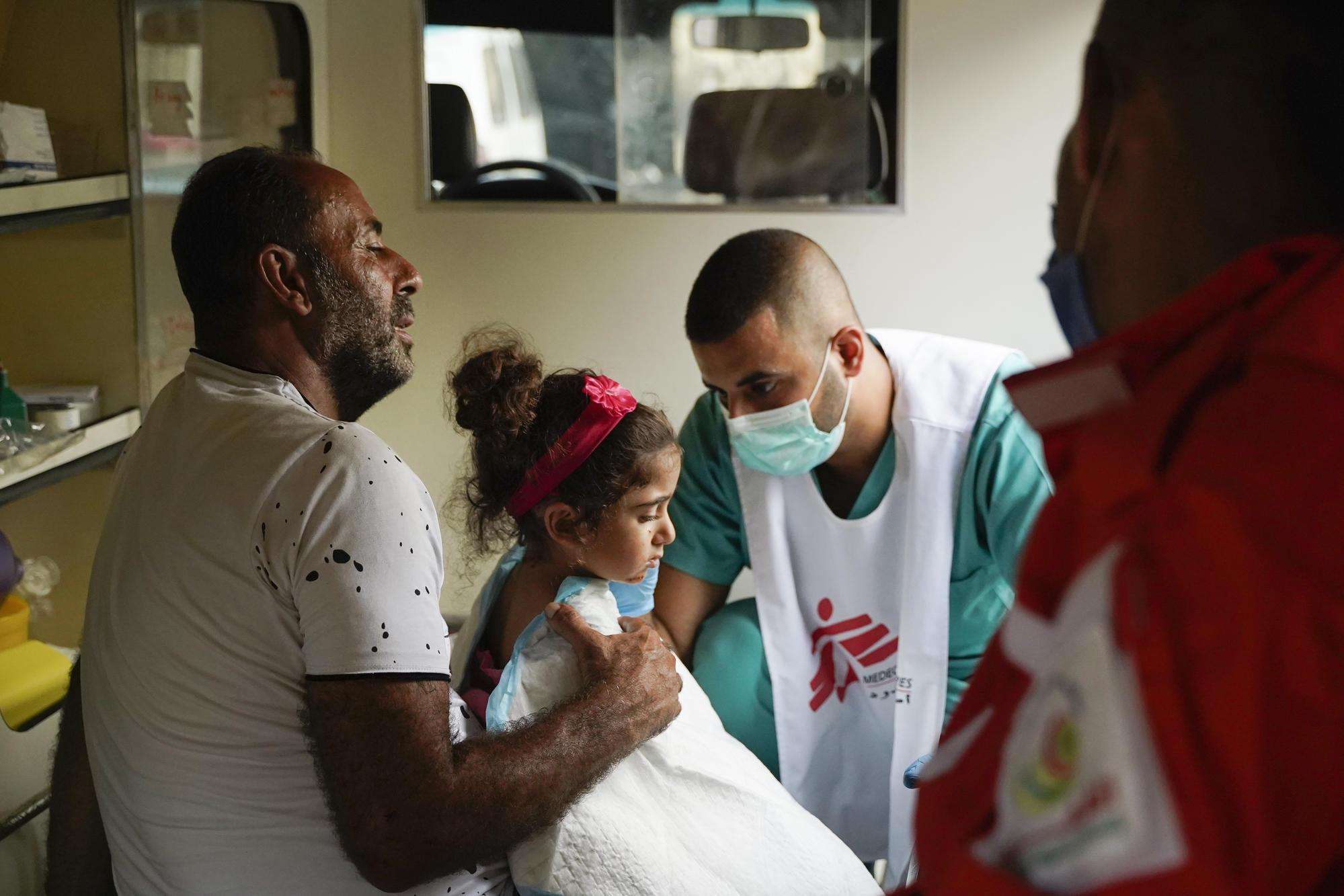Updated on August 14, 2020
One week after a devastating blast shook Beirut on August 4, 2020, Doctors Without Borders/Médecins Sans Frontières (MSF) teams are on the ground providing wound care for people still suffering from injuries, continuity of care for patients being treated for chronic diseases, and mental health care for people affected by the disaster.
These services are being delivered at two fixed medical points that have been set up in the neighborhoods of Mar Mikhael and Karantina, the areas most affected by the explosion. MSF teams are going door-to-door to evaluate the needs of people living in the area to better provide them with assistance. We have also installed water tanks and distributed clean water and hygiene kits at the request of people surveyed in the area.
The massive explosion that occurred one week ago ripped through Beirut’s port warehouses, killing more than 150 people and injuring more than 6,000. The blast generated seismic shockwaves that shook the ground, shattering windows and destroying buildings across Beirut, a city already reeling from an economic crisis and a surge in COVID-19 infections.
“Before the explosion, the public system was struggling to handle the increasing number of COVID-19 cases,” said Julien Raickman, MSF’s head of mission in Lebanon. “Since then, there has been a very steep rise in reported COVID-19 cases in Lebanon, especially in Beirut. There have been more than 1,500 new cases in a week . . . On the night of the explosion, there was a huge influx of patients into health facilities across the capital, and infection and prevention measures could not be implemented properly, which eventually led to this increase [in cases]. Over 300,000 people lost their homes [in the explosion] and have had to find other places to stay, which doesn’t make things any easier. This rise of cases is a major concern for us and we’re trying to see how to best adapt our projects under such circumstances.”
Mental health is another major area of concern. “After the civil war, economic crises, and the recent financial and social hardships, this latest incident has added an extra layer of trauma for the people of Lebanon,” added Raickman. “Based on our experience, we know that this will have a tremendous impact on the psychological wellbeing of the people and will stay for years to come. That’s why a national mental health strategy needs to be put in place to manage the long-term psychological impacts of this crisis on the people of Lebanon.”
Because mental health care was already a key pillar of MSF’s work in Lebanon we were able to quickly mobilzse a team of nine psychologists to take part in the emergency response. They provided psychological first aid and are now working towards developing a long-term response for people in need.
On the night of the explosion and in the days that followed, MSF donated first-aid dressing kits and surgical masks to the Civil Defense and the Lebanese Red Cross to help prevent the spread of COVID-19 and support first-responders. Since then, we have been working on providing additional medical supplies to support those tending to the high number of injured people.
“The role of these actors and of local organizations has been crucial, especially in this first week following the explosion,” said Raickman. “We’re trying to adapt our projects based on existing activities that have already been implemented by civil society groups, because they are clearly the leading force in this collective response to the events.”
MSF first worked in Lebanon in 1976 in response to the country’s civil war. Today, more than 600 MSF staff members provide free medical care throughout Lebanon.




